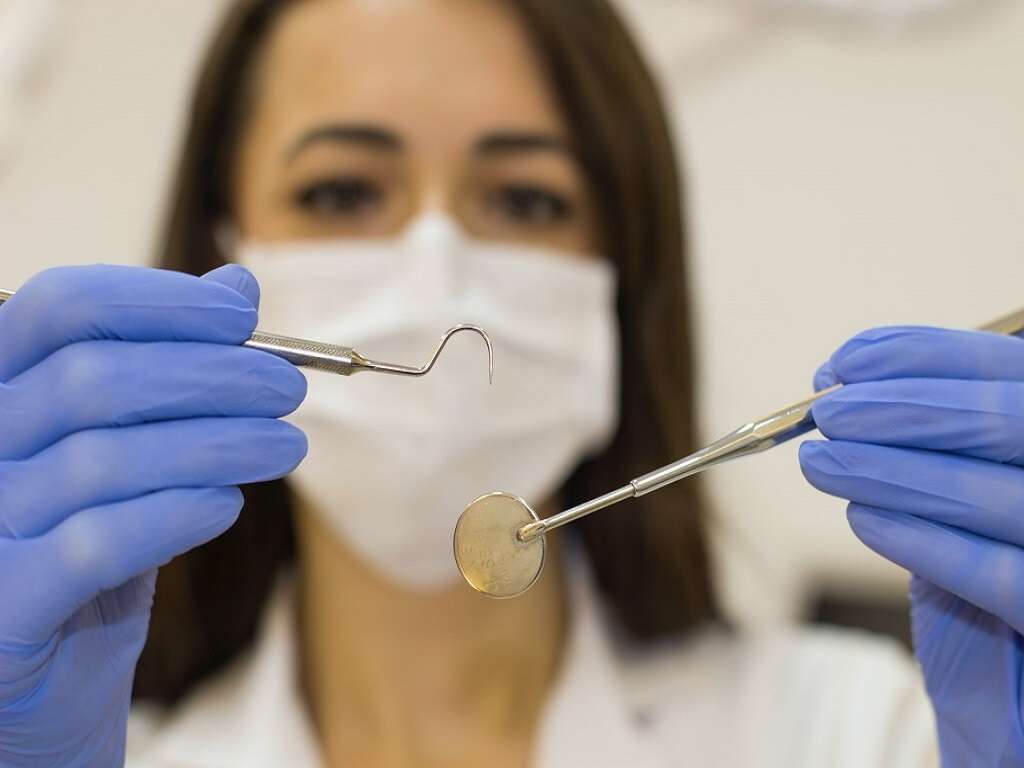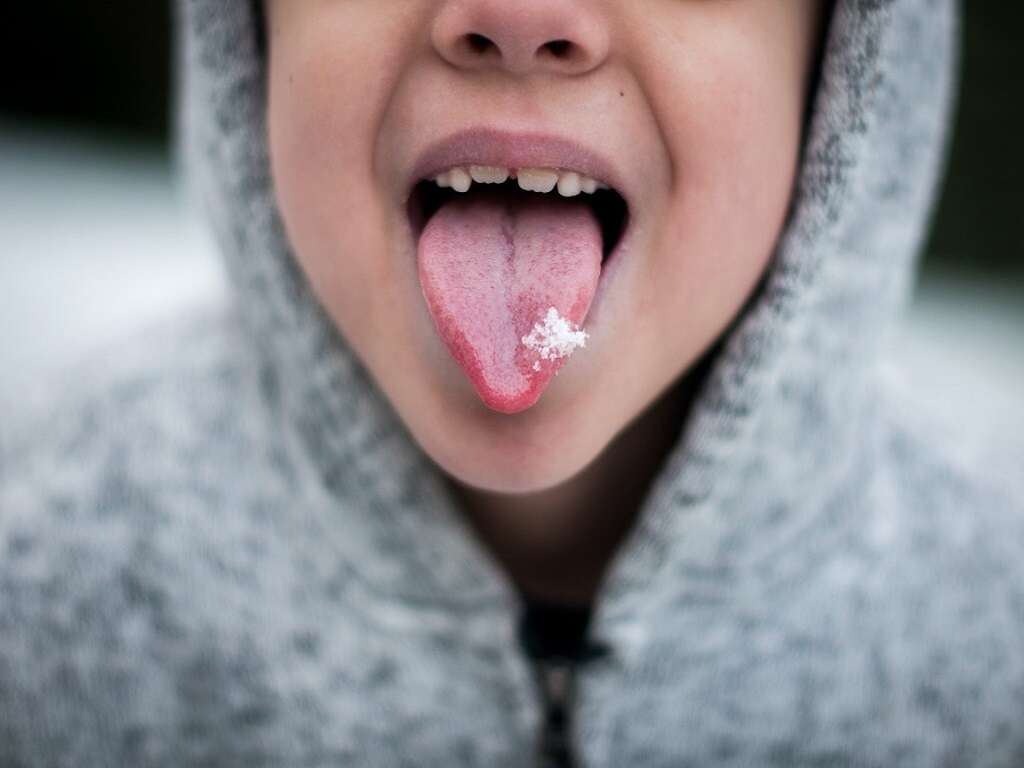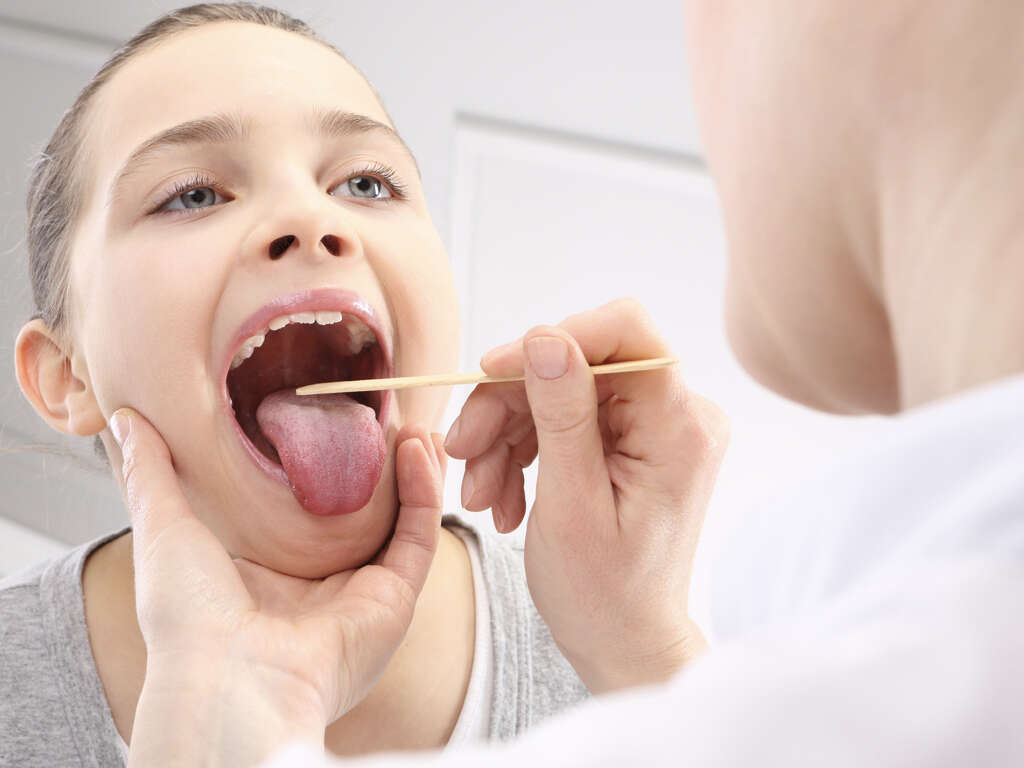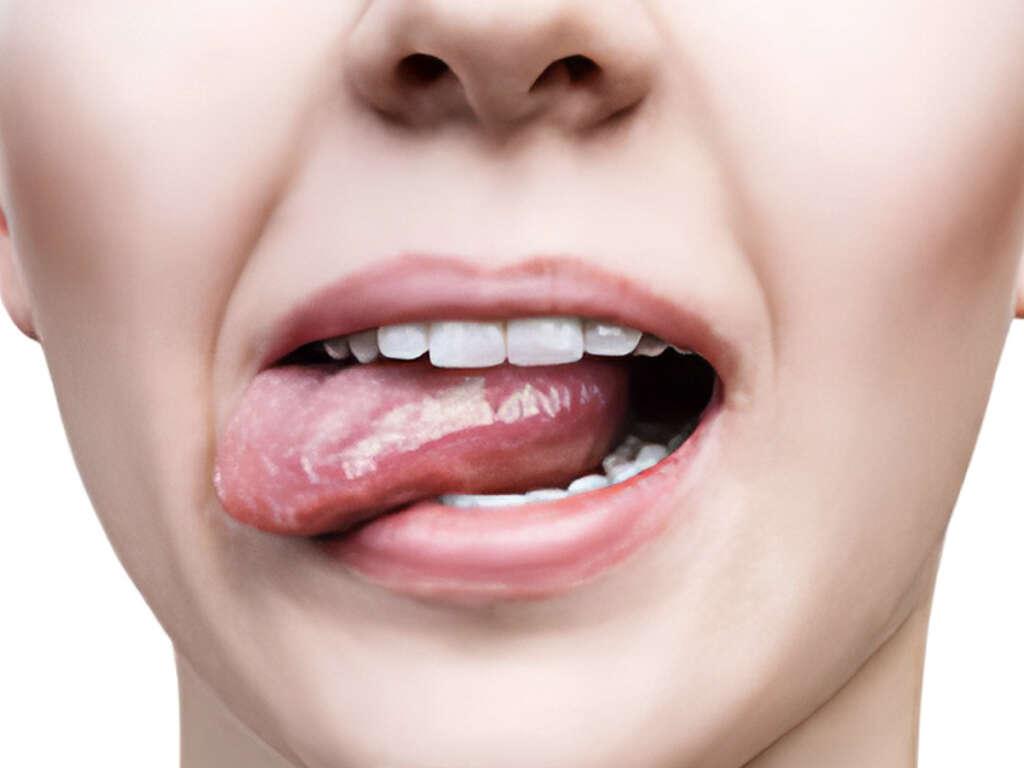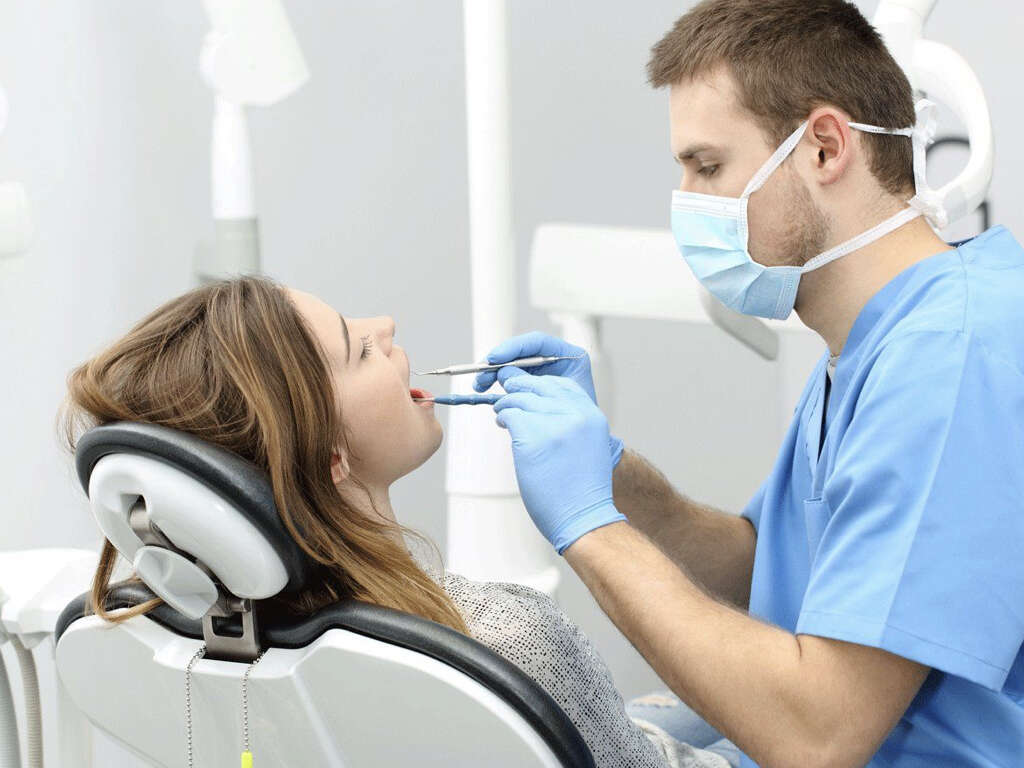What Is Hairy Tongue?
Our tongues are very important to us. Without them, we would not be able to taste our food. Without a sense of taste, we would find it difficult to detect which foods might be harmful to us. Not being able to taste our food will also make food a lot less appealing, potentially resulting in the patient not getting enough nutrition.
There are some medical conditions that can affect the tongue, one of which is hairy tongue. It is a fairly mild condition, which is a good thing, especially considering hairy tongue is also quite common. Here’s a closer look at the condition and what we can do to prevent and/or treat it.
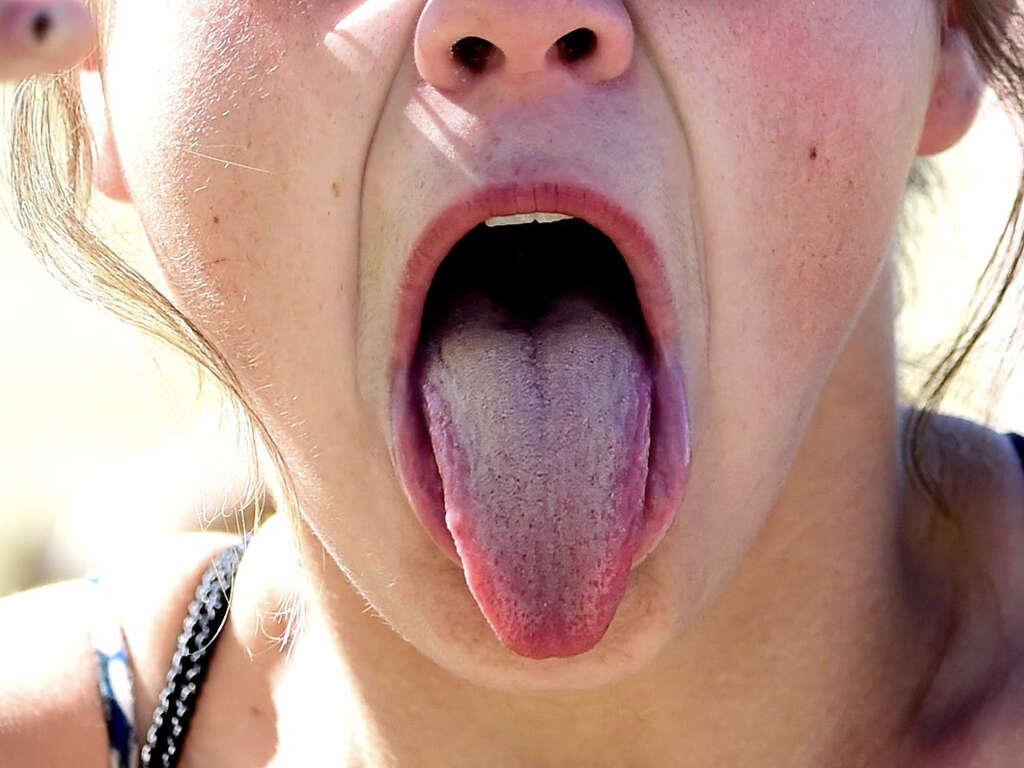
1. Hairy Tongue?
As the name suggests, hairy tongue condition is one where the patient appears to have hair growing on their tongue. While it may appear as though hair is growing on the tongue, however, there is no hair involved in the condition.
Hairy tongue is a relatively common condition and around 13% of people are expected to develop it at some point in their lives. It can affect anybody, but men are more likely to develop it than women are. It is also more likely to happen in older people than in younger people. The condition can cause other symptoms also in a small number of cases.

2. Filiform Papillae
Take a look at your tongue in the mirror and you will see that the surface is not completely smooth. It has a slightly rough texture and this is caused by lingual papillae. These are small structures on the surface of the tongue and there are 4 different types. 3 of these are associated with our sense of taste.
Filiform papillae are those not associated with taste, but they do give our tongues their sense of touch. These small growths will usually fall off after a while and be replaced with fresh papillae. Sometimes, however, they continue to grow and they can reach as long as 18mm in some cases. They can become discolored, and this can result in the appearance of hair growing on the tongue.
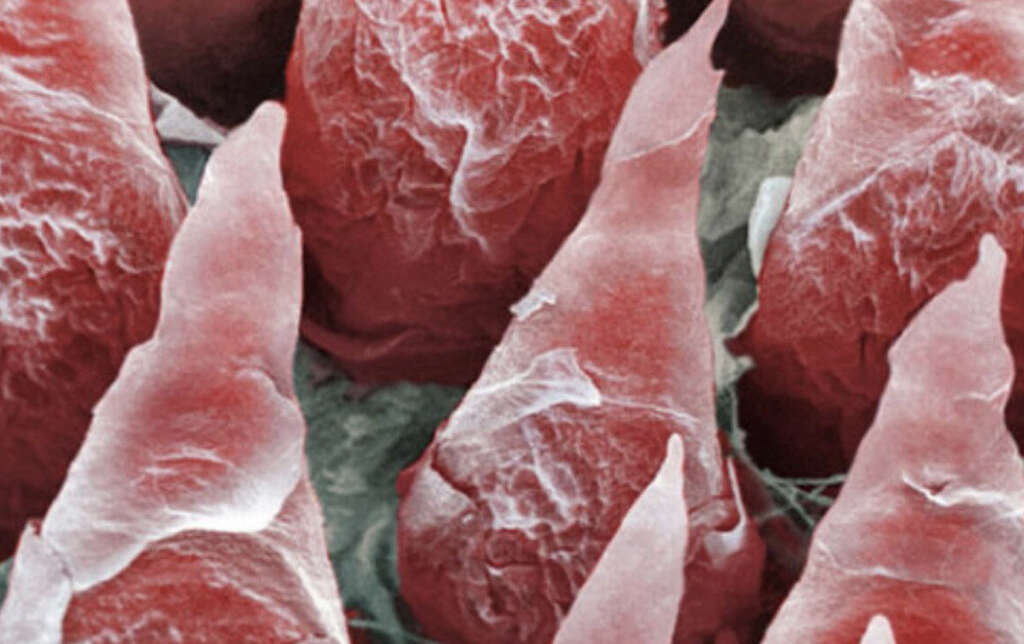
3. General Causes
It is not entirely clear why hairy tongue happens. We do know, however, that it is associated with certain activities, or lack thereof. For example, people that do not maintain high oral hygiene standards are more likely to develop it than other people are.
People that tend to eat soft foods may develop the condition as the filiform papillae are not made to fall away. Some medications can cause the condition, as can radiation therapy. Dehydration can also cause the condition, as can having a dry mouth. People that drink excess alcohol and/or smoke are also at greater risk, and people that use cocaine are also. Drinking lots of tea and coffee can also be a cause.

4. Symptoms
Most cases will see no other symptoms in addition to the appearance of hair growing on the tongue. Symptoms will occur in a small number of cases, however, and they can be quite unpleasant for the patient. One such symptom is that the patient can experience a change in their sense of taste.
This change in taste can be down to the taste buds being covered, while it can also be down to an accumulation of bacteria or yeast on the tongue. The bacteria can also produce foul smelling gases, resulting in bad breath. The yeast or bacteria can also sometimes cause a burning sensation.
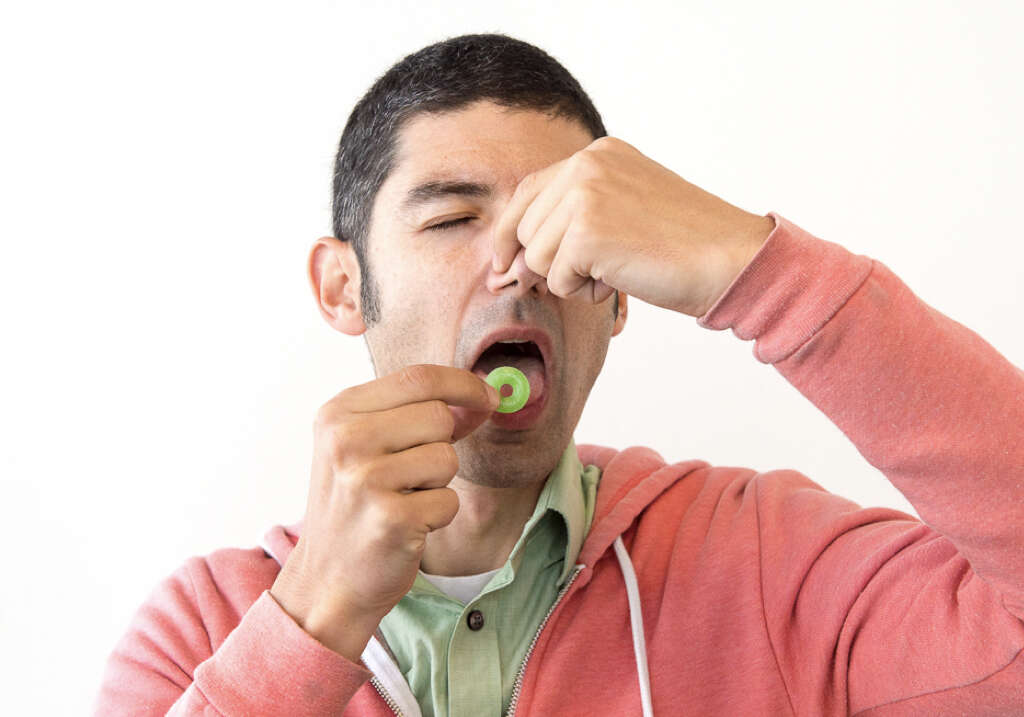
5. Black And Hairy Tongue
Among the most common type of hairy tongue is black hairy tongue, which appears just as the name suggests. It is basically the same condition as other types of hairy tongue, with the main difference being the black coloration of the patient’s tongue.
The black color is caused largely by what the patient eats and drinks. If they drink tea or coffee regularly then this can cause the discoloration. Smoking regularly can also turn the tongue black, and some mouthwashes can also cause the condition. Another possible cause is the buildup of yeast and bacteria in the growing filiform papillae.
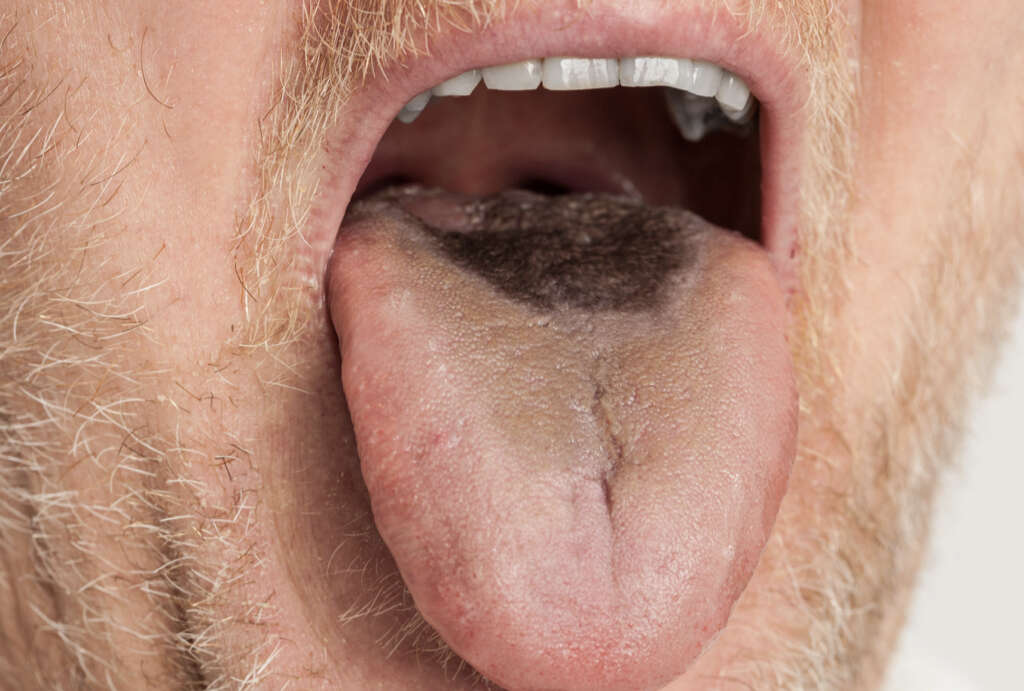
6. White And Hairy Tongue
Some patients will have a tongue that appears to be white and hairy instead. This is often down to a condition known as hairy leukoplakia. The condition will usually appear in patches but it can sometimes spread to cover the entire tongue. Hairy leukoplakia is itself often caused by other conditions.
One such condition is HIV/AIDS and it is often one of the first signs that somebody has been infected with HIV. Another cause is an infection from the Epstein-Barr virus, which is the cause of the common disease commonly known as mono. The virus tends to remain dormant in the body, and patients can find that white hairy tongue sometimes returns.

7. Other Colors
Black hairy tongue and white hairy tongue are perhaps the most two common types, but there are others. In some cases, the patient’s tongue can be gray, brown, pink, and even green. The cause of the condition is nearly always the same one that will cause black hairy tongue.
The cause of the different colors is usually the same thing that causes the black color – different food and drinks. If you like to eat candies of a certain color, for example, they can turn a ‘hairy’ tongue the same color. The treatment for the condition will be the same regardless of the color, except for white in some cases.

8. Complications
For the most part, hairy tongue is quite a harmless condition. It can cause some unwelcome symptoms in a small number of cases, but these are also not usually a threat to the patient. It is also usually fairly short-lived, passing with no permanent damage done.
Some people, however, will struggle psychologically with the condition. The sensation can be discomforting for a lot of people, while the appearance of the condition can be very embarrassing for some. It can cause some people to become quite self-conscious about their appearance and it can lead to a loss of self confidence in some people.

9. Prevention
The prevention of hairy tongue largely involves making certain lifestyle choices. The main one being to brush and floss your teeth regularly; at least twice every day. This includes brushing the tongue as well as the teeth, while using an antiseptic mouthwash can also help to prevent hairy tongue from occurring.
It is also advisable to try and at least limit how much alcohol you consume. Smokers should also consider quitting for a number of health reasons in addition to preventing hairy tongue. If you live on a soft diet, including some hard foods in your diet will also help to prevent the condition from arising.
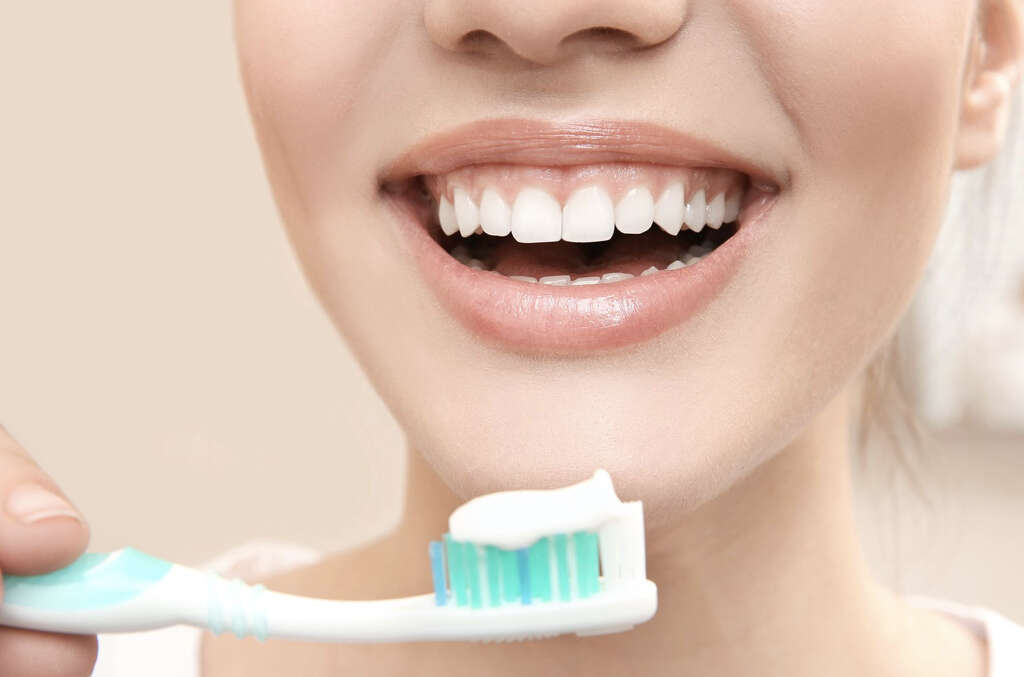
10. Treatment
Hairy tongue is only a temporary condition that will usually pass by itself before long. Any treatment will often involve making certain lifestyle changes such as quitting smoking or drinking less coffee or alcohol. Brushing the tongue with a specialized tool can also help to treat the condition.
If these methods don’t work then the patient might need to turn to medication to try and treat the condition. This will often mean using antifungal or anti-bacterial medication. In a small number of cases, it may be necessary for surgery to help remove the overgrown filiform papillae from the tongue directly.




